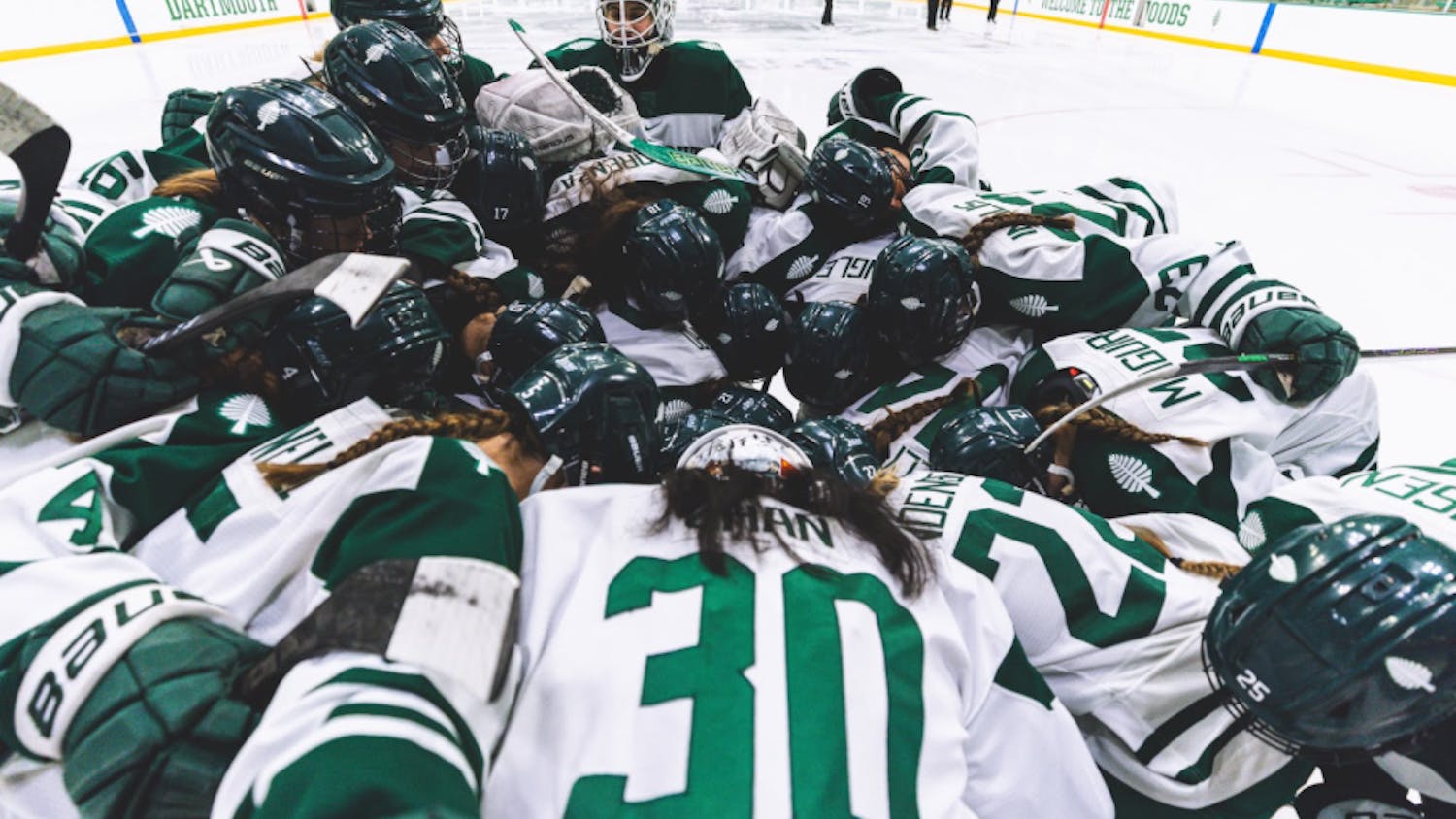With a highly decorated new coach to point the Big Green program in a new direction, the women’s hockey team entered the 2016-2017 season eager to shake off last year’s 6-19-3 season. This season has seen a repeat of last year’s struggles, likely the growing pains associated with a rebuilding program and a new coaching system. The Big Green currently sit second-to-last in the ECAC Hockey standings, only in front of Union College, who the Big Green defeated in a 2-1 nail biter on Jan. 13.
It would be unfair, however, to draw a simple conclusion from looking at the Big Green’s 5-17-0 overall record this season. Of the team’s 17 losses thus far, seven have come by a single goal, and another seven have come by more than two goals. One of the most noticeable aspects of the team’s play this season, however, has been an astonishing lack of offensive production. Though this season was expected to be one in which new offensive threats emerged to replace three of last year’s top four scorers in Laura Stacey ’16, Lindsey Allen ’16 and Ailish Forfar ’16, the Big Green have been outscored 60-26 and are averaging just 1.18 goals per game.
One of the lone offensive bright spots this season has been the play of assistant-captain Kennedy Ottenbreit ’17, who led last year’s team with 11 goals and nine assists. The senior from Grayson, Saskatchewan once again leads the Big Green with 11 points (seven goals, four assists), seven of which have come against ECAC competition. According to Ottenbreit, Dartmouth’s offensive struggles this season have not been ignored by the coaching staff, which has recently implemented more offensive work during practice. After a 6-1 loss to Colgate University on Saturday afternoon, Ottenbreit was adamant that the team can only continue to work hard.
“We have stuck to our system and there has been heavy emphasis on offense,” Ottenbreit said. “Our focus on practice has been entirely on offense and we just need to keep battling to try to put the puck in the net. We just need to keep battling and working hard, that’s all we can really do.”
This season’s offensive struggles have also brought a considerable amount of pressure and attention to goaltender Robyn Chemago ’17, a returning three-year starter. Chemago’s 0.926 save percentage currently places her in a tie for 13th nationally, and fourth amongst ECAC goaltenders. Night after night, Chemago has given Dartmouth a chance to win, and her solid play has consistently kept Dartmouth in games in which its skaters have been overmatched. On Friday evening against Cornell University, in which Dartmouth was outshot 29-13, Chemago’s presence in the crease and rebound control kept the Big Green competitive in a contest that did not see the Dartmouth offense register many quality chances until Chemago was pulled for an extra skater late in the third. Saturday afternoon’s 6-1 loss to Colgate University could have also been more severe, had Chemago not turned aside a series of point-blank attempts. When asked about her play this season, Chemago was quick to note that ultimately, her success comes from ignoring the big picture.
“I try not to think about making big saves, but rather the little things I can do,” Chemago said. “Ultimately, I try to just play with a lot of energy not get too high off of the big saves, and not too low when pucks go in.”
Despite a lackluster first season in Hanover, head coach Laura Schuler has been complimentary of her team’s effort and resiliency during the season. After the loss against Colgate, Schuler’s focus became how her team had improved throughout the year and what needs to be done in order for Dartmouth to return to the winner’s circle.
“I think there has been a big learning curve, but the girls have come a long way,” Schuler said. “For us to be successful, we need to make better puck reads. We need to make better positional maneuvers around better puck reads.”
To expect much more from a team learning a new offensive system under a new staff would have been unwarranted pressure. Fans should not have been so quick to proclaim Schuler as the savior of the program, one that has struggled the last few seasons.
What Schuler does bring to the table as Dartmouth’s head coach is the resume of an elite player and coach who can recruit the next generation of women’s hockey talent to Hanover. Schuler played her college hockey at Northeastern University and the University of Toronto, before joining the Canadian women’s national team. Among the hardware she earned while playing for the national team were three International Ice Hockey Federation world championship gold medals and a silver medal at the 1998 Olympic Winter Games in Nagano, Japan. Since her playing days ended, Schuler has served as the head coach at her alma mater and the University of Massachusetts Boston, as well as seven seasons as an assistant at the University of Minnesota Duluth, where her teams advanced to two Frozen Fours and captured the 2010 National Championship. Her college coaching positions have also been complemented by coaching assignments within Hockey Canada, including head coach of the U18 national team and assistant coach for the women’s national team.
There is no doubt that Schuler has the ability to create a recruiting pipeline stretching from Hockey Canada to Hanover in the near future. Perhaps we will not see many more wins from the women’s team this season, but it appears that the program is in good hands and that current members of the team are buying into Schuler’s system. After all, I do not think there is anything on Schuler’s curriculum vitae that is not worth buying into.



